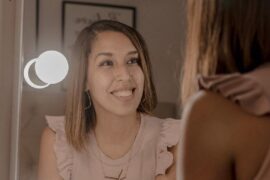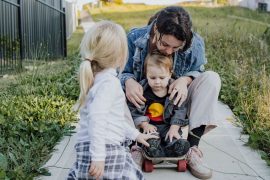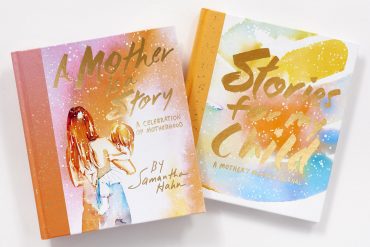That is why I felt it was so important to give parents real examples and language of how to set empathic limits and hold space for the whole child in the book.
It’s like practising a new skill, new type of language and attitude. So when we get to read these words to our child, this way of relating to them during challenging moments starts to sink in.
This way of communicating and limit setting still feels very foreign to many of us. Most of us did not grow up feeling heard and understood and because of this we carry so much shame. It’s something we need to realise on a deep level. The fact that most of us carry a big, biiiiig bag full of shame on our back, shame that never was ours to carry in the first place, shame that was placed on us because of lack of knowledge and awareness. Shame projected onto us directly from the portal of our parents’ own unhealed wounds.

This work is not about blame.
Our parents didn’t know better, or even if they knew, they couldn’t do better. They were dealing with their own stuff, pain and trauma passed down to them from previous generations.
Our parents truly did their best just as we are doing our best.
It is incredibly healing to realise that you can choose a different path for yourself and your children. To see how you can break the cycle and consciously choose to step out of some of those patterns. This is much of what respectful and mindful parenting is about, intentionally stepping into a greater awareness and then choosing differently in your own parenting.
Feeling heard and understood is a deep need for our children. To feel connected, to know that we get it, that we understand.
It all starts with holding space for the whole child, to accept them fully. And then to demonstrate our unconditional love by consistently showing up with love for their highest of highs as well as their lowest of lows.
To regularly get the message from us that we are on their side – also when we are setting boundaries!

There truly is NO going back when you start communicating in this way with your child – or anyone for that matter. And where I think it all starts is with holding space for the whole child, all of them, and consistently showing up with love for their ups as well as their downs.
As the book puts it, “We all get upset from time to time. Some days, when you’re in a bad mood, it might feel good to cry. Other days, when you’re so happy you feel like you could burst, it might feel good to laugh. Crying is good – laughing is good.”
Kristin Maríella is mother to 2 young children and a passionate respectful parenting enthusiast. You can find out more about her on her website and purchase her wonderful book ‘Sometimes I Cry, Sometimes I laugh’ here.










